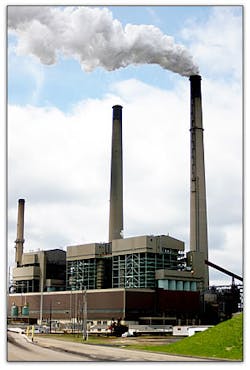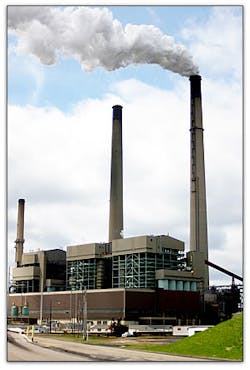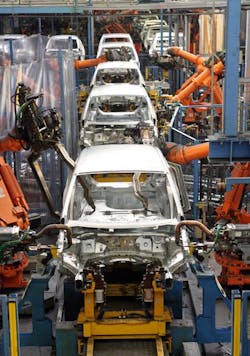It’s an age-old axiom for truck drivers: if you see signs of trouble ahead, start slowing down, because time and space is what you need to safely maneuver your big rig out of danger.
The same maxim applies in the business world, too, as companies large and small tend to hoard cash and put off investments if dark clouds of uncertainty obscure the road ahead. Right now, that seems to be the tactic U.S. businesses are deploying even though many feel headway is being made to address the dreaded “fiscal cliff.”For example, in PricewaterhouseCooper’s (PwC) latest Private Company Trendsetter Barometersurvey conducted in the third quarter this year, corporate optimism about U.S. economic prospects for the next 12 months remained tempered, with 44% expressing confidence (down six points from 50% in the second quarter), 15% registering pessimism (up three points), and 41% voicing uncertainty (up 3 points).
Yet despite the further dip in optimism, private companies are significantly more confident than they were this time last year, when only 27% expressed optimism, stressed Ken Esch, a partner with PwC's private company services practice.
"As we approach the end of another year of slow growth, U.S. private companies are as uncertain as they are optimistic," he noted. "These mixed sentiments have been common among Trendsetter companies in recent years. But private companies are resilient, and so although ongoing uncertainty has caused some businesses to delay or scale back plans, it hasn't translated into inaction.”
Indeed, despite the backdrop of continuing economic uncertainty and the looming fiscal cliff, PwC US's Trendsetter survey found that private companies boosted their projected revenue growth rate for the next 12 months to 8.6% in the third quarter, up from 8.3% in the second quarter, with projected revenue growth rate increasing from 6.9% to 8.6% quarter-over-quarter.
International companies, on the other hand, reduced their revenue growth to 8.5% in the third quarter, down from 9.7% in the second quarter this year, according to PwC’s poll.
Truckers should be concerned about the pullback in investments because, of course, that translates into less freight demand. Another worry is how the manufacturing industry in this country continues to face uphill challenges from other nations – again, a trend that could impact a significant volume of goods carriers by truckers large and small.According to the 2013 Global Manufacturing Competitiveness Index compiled from a survey of 550 CEOs and other leading executives by consulting firm Deloitte LLP and the U.S. Council on Competitiveness, over the next five years, manufacturing stalwarts like the U.S., Germany and Japan will under increasing pressure to maintain their competitive manufacturing edge against emerging nations such as China, India and Brazil.
Both groups said that the global landscape for competitive manufacturing is in their words, “in the midst of a massive power shift,” with the U.S. losing its current rank of third among competitive manufacturing nations, falling to fifth place just five years from now – only slightly ahead of the Republic of Korea.
The three other developed nations currently in the top 10 also fall in five years: Germany drops from second to fourth place, Canada slides from seventh to eighth place and Japan drops out of the top 10 entirely, falling to 12th place.
Further, Deloitte’s poll finds that Germany's slide in competitiveness holds true for several other European nations, including the United Kingdom, France, Italy, Belgium, the Netherlands, Portugal, Poland and the Czech Republic, which are all expected to experience a dramatic decrease in their ability to compete. Poland, for example, drops from 14th to 18th place on the Index, while the United Kingdomdrops from 15th to 19th place.
"America and Europe have continued to watch emerging markets mature and become formidable competitors over the past decade," said Craig Giffi, vice chairman at Deloitte and leader of the firm’s consumer and industrial products division.
He noted that in five years key emerging nations are expected to "vault forward" in the Index: Brazil jumps from its current eighth place slot to third place and India jumps from fourth to second place. China, however, will remain firmly in first place."While several nations in the Americas will continue to show significant manufacturing potency – with the U.S., Brazil, Canada and Mexico all in the top 15 most competitive nations five years from now – many advantages are tilting toward Asia, which are expected to have 10 of the top 15 most competitive nations within the decade," Giffi added.
That being said, Deborah Wince-Smith – president and CEO of the U.S. Council on Competitiveness – noted that even though the U.S. is expected to slide in the Index in five years, it remains a “powerful competitor” in her words – one that is poised to lead the technological transformation in manufacturing.
"The image of manufacturing as dumb, dirty, dangerous and disappearing is far from accurate," she stressed. "Today, U.S. manufacturing remains at the technological forefront; it has become smart, safe and sustainable – and this powerful brand of domestic manufacturing is surging nationwide."
Wince-Smith points out that just a scant two years ago, this survey ranked the U.S. fourth in terms of global manufacturing competitiveness – lower than this year's third place ranking. Similarly, Germany improved from eighth place to fourth place between the 2010 Index and the 2013 Index.
“The net gain in both countries shows that 20th-century powerhouses can still stake out ‘winning ground’ and can more than hold their own in areas like advanced manufacturing,” Wince-Smith said.
For trucking’s sake, let’s hope that such “winning ground” can indeed be found and secured – and soon, too.



